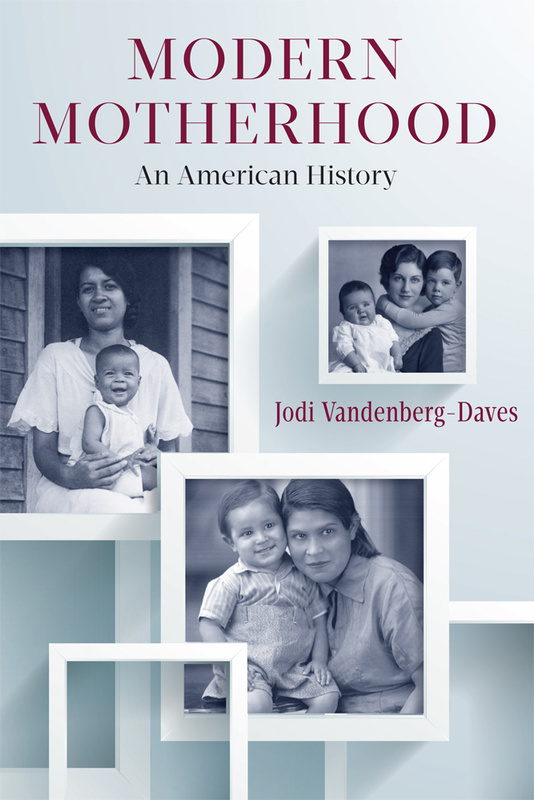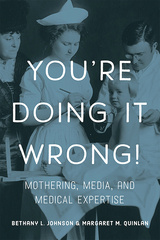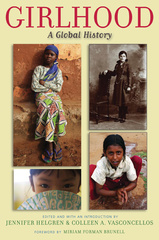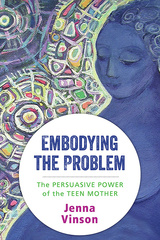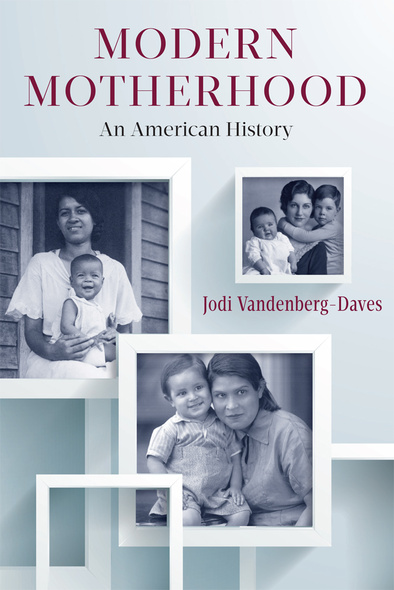
pages, 6 1/8 x 9 1/4
15 photographs
Paperback
Release Date:26 May 2014
ISBN:9780813563787
Hardcover
Release Date:26 May 2014
ISBN:9780813563794
How did mothers transform from parents of secondary importance in the colonies to having their multiple and complex roles connected to the well-being of the nation? In the first comprehensive history of motherhood in the United States, Jodi Vandenberg-Daves explores how tensions over the maternal role have been part and parcel of the development of American society.
Modern Motherhood travels through redefinitions of motherhood over time, as mothers encountered a growing cadre of medical and psychological experts, increased their labor force participation, gained the right to vote, agitated for more resources to perform their maternal duties, and demonstrated their vast resourcefulness in providing for and nurturing their families. Navigating rigid gender role prescriptions and a crescendo of mother-blame by the middle of the twentieth century, mothers continued to innovate new ways to combine labor force participation and domestic responsibilities. By the 1960s, they were poised to challenge male expertise, in areas ranging from welfare and abortion rights to childbirth practices and the confinement of women to maternal roles. In the twenty-first century, Americans continue to struggle with maternal contradictions, as we pit an idealized role for mothers in children’s development against the social and economic realities of privatized caregiving, a paltry public policy structure, and mothers’ extensive employment outside the home.
Building on decades of scholarship and spanning a wide range of topics, Vandenberg-Daves tells an inclusive tale of African American, Native American, Asian American, working class, rural, and other hitherto ignored families, exploring sources ranging from sermons, medical advice, diaries and letters to the speeches of impassioned maternal activists. Chapter topics include: inventing a new role for mothers; contradictions of moral motherhood; medicalizing the maternal body; science, expertise, and advice to mothers; uplifting and controlling mothers; modern reproduction; mothers’ resilience and adaptation; the middle-class wife and mother; mother power and mother angst; and mothers’ changing lives and continuous caregiving. While the discussion has been part of all eras of American history, the discussion of the meaning of modern motherhood is far from over.
Modern Motherhood travels through redefinitions of motherhood over time, as mothers encountered a growing cadre of medical and psychological experts, increased their labor force participation, gained the right to vote, agitated for more resources to perform their maternal duties, and demonstrated their vast resourcefulness in providing for and nurturing their families. Navigating rigid gender role prescriptions and a crescendo of mother-blame by the middle of the twentieth century, mothers continued to innovate new ways to combine labor force participation and domestic responsibilities. By the 1960s, they were poised to challenge male expertise, in areas ranging from welfare and abortion rights to childbirth practices and the confinement of women to maternal roles. In the twenty-first century, Americans continue to struggle with maternal contradictions, as we pit an idealized role for mothers in children’s development against the social and economic realities of privatized caregiving, a paltry public policy structure, and mothers’ extensive employment outside the home.
Building on decades of scholarship and spanning a wide range of topics, Vandenberg-Daves tells an inclusive tale of African American, Native American, Asian American, working class, rural, and other hitherto ignored families, exploring sources ranging from sermons, medical advice, diaries and letters to the speeches of impassioned maternal activists. Chapter topics include: inventing a new role for mothers; contradictions of moral motherhood; medicalizing the maternal body; science, expertise, and advice to mothers; uplifting and controlling mothers; modern reproduction; mothers’ resilience and adaptation; the middle-class wife and mother; mother power and mother angst; and mothers’ changing lives and continuous caregiving. While the discussion has been part of all eras of American history, the discussion of the meaning of modern motherhood is far from over.
A stimulating book that places mothers at the center of American history, Modern Motherhood highlights the dramatic changes to maternal ideologies, politics, and experiences over 250 years. An impressive achievement.
Vandenberg-Daves skillfully illustrates the activity and activism of mothers as well as the power of the rhetoric and the role of motherhood…an impressive synthesis of some of the most important recent scholarship on the topic.
Whatever kind of mother you may be, or whatever kind of mother you had, you will find her, with her problems and her grief, her determination and her pride, somewhere in these pages.
This book is a comprehensive...history of motherhood in the US. Recommended.
Jodi Vandenberg-Daves helpfully synthesizes the scholarship on twentieth-century motherhood and its earlier roots. What, she asks, is the history of motherhood as institution and mothering as experience in modern motherhood? Existing scholarship tells most about the former ... Vandenberg-Daves also points to the patterns of social history and the departure of mothering from the institution of motherhood. What happened on the ground is compelling and diverse, if highly elusive in the archives.
Weaving together various threads in the story of the emergence of modern motherhood in America, [Vandenberg-Daves] offers a compelling new look at the socio-cultural, historical, political, religious, and economic factors that coalesced to create our current conception of motherhood.
JODI VANDENBERG-DAVES is a historian and professor of Women’s Studies at the University of Wisconsin La Crosse. She is editor and co-author of Making History: A Guide to Historical Research Through the National History Day Program.
Acknowledgments
Introduction
Part One Roots of Modern Motherhood: Early America and the Nineteenth Century
1 Inventing a New Role for Mothers
2 Contradictions of Moral Motherhood: Slavery, Race, and Reform
3 Medicalizing the Maternal Body
Part Two Modern Mothers: 1890–1940
4 Science, Expertise and Advice to Mothers
5 Grand Designs: Uplifting and Controlling the Mothers
6 Modern Reproduction: The Fit and Unfit Mother
7 Mothers’ Resilience and Adaptation
Part Three Mothers of Invention: World War II to Present
8 The Middle-Class Wife and Mother Box
9 Mother Power and Mother Angst
10 Mothers’ Changing Lives and Continuous Caregiving
Conclusion
Notes
Index

